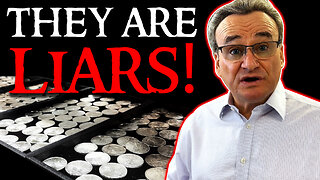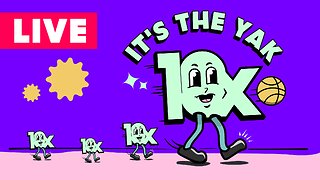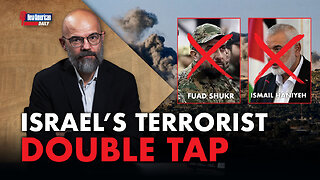Dangerous Liaisons: Israel & The CIA
The husband-and-wife team of Andrew and Leslie Cockburn discussed their experiences researching their book Dangerous Liaisons, which details collaboration between Israeli intelligence and the CIA and other U.S. intelligence agencies. They amassed documentation from U.S. and Israeli intelligence sources, Israeli press reports, interviews and Hebrew documents. Their information indicates significant U.S.-Israeli cooperation in covert operations in various parts of the world.
https://www.c-span.org/video/?20968-1/dangerous-liaisons
https://www.youtube.com/watch?v=FqzvXCzXZg8
____________________________________
C-SPAN Booknotes
Andrew Cockburn: Dangerous Liaisons
Program Air Date: September 1, 1991
Transcript
BRIAN LAMB, HOST: Andrew Cockburn, co-author of "Dangerous Liaison: The Inside Story of the U.S.-Israeli Covert Relationship," what's the premise of your book?
ANDREW COCKBURN, CO-AUTHOR OF "DANGEROUS LIAISON: THE INSIDE STORY OF THE U.S.-ISRAELI COVERT RELATIONSHIP": The premise is that there's a side to the relationship between the U.S. and Israel which goes much beyond just the sentimental links and the links forged by supporters of Israel in this country. What we say, what we explain is that there has been since almost the earliest days of the Israeli state and the earliest days of the CIA a secret bond, a secret link between them, basically by which the Israelis -- the Israeli intelligence -- did jobs for the CIA and for the rest of American intelligence. You can't understand what's been going on around the world with American covert operations and the Israeli covert operations until you understand that the two countries have this secret arrangement.
LAMB: Leslie Cockburn, what was the most interesting part of writing this book?
LESLIE COCKBURN, CO-AUTHOR OF "DANGEROUS LIAISON: THE INSIDE STORY OF THE U.S.-ISRAELI COVERT RELATIONSHIP": There are a number of things. For example, one particular part which I found most interesting was we talk about Israeli operations in Colombia and some of the Israeli commandos who trained the hit squads of the Medellin cartel. It turns out that they had trained us in Israel as well when they were between trips to Colombia. These were the same people who also trained most of the top commanders in the Guatemalan military and also trained the Contras. They had a firm that was under license to the Israeli Ministry of Defense, and then they'd turn up in the jungles of Puerto Boyac in Colombia. So, we had a lot of adventures, I must say.
LAMB: Did the Israelis cooperate with you at all on this book?
A. COCKBURN: Well, we never made an official approach to the Israeli government or Mossad or anything like that, but we managed to get in the end to talk to all the people we wanted to talk to in Israel. We talked to people like, for instance, David Kimche who had a long Mossad career. He eventually rose to be deputy head of Mossad, the Israeli secret intelligence agency -- the equivalent of the CIA. I remember a wonderful evening we had in his home, in his study, where he was talking in guarded fashion about his career in intelligence. He then went on to be director general of their foreign ministry.
But I certainly noticed around the walls of his study where we were sitting, it was like a history of Israeli covert operations because, for instance, on one wall there were the most beautiful wood carvings, African wood sculptures. I said, "Oh, they're lovely, David. Where did you get those?" "Oh, a present from [Sese-Seko] Mobutu in Zaire." "Oh, that one's nice. Where did that come from?" "[Jean-Bedel] Bokassa of the Central African Empire." Then on another wall beautiful Persian miniatures. "Where did they come from?" "Oh, a present from the Shah for something we did for him."
So, there was this man sitting, this master spook, surrounded by mementos of his career. And so, we talked to him. We spent a lot of time talking -- well, there's a street in Tel Aviv, an avenue called Shaul Hamalekh, which is right across the street from what's called the Kirya, which is the Ministry of Defense compound. It's a huge area in the middle of Tel Aviv. On the other side of Shaul Hamalekh is a row of very fancy high-rises which is basically the headquarters of the Israeli military-industrial complex -- I mean, that area is, so you have offices of all the major arms dealers, the offices of the Israeli representatives of the major American defense corporations. You have Mossad headquarters. Just down one side street you have a very beautiful building which is the headquarters of a man called Shaul Eisenberg, which not many people in the outside world know about, but he's certainly the richest and probably the most powerful man in Israel. He's the master arms dealer. He's behind a lot of political campaigns, behind a lot of politicians. Again, very much involved in this secret world of arms deals and covert operations that we talk about as the link with America.
LAMB: There were two American names early in the book -- Al Schwimmer and Hank Greenspun.
A. COCKBURN: Al Schwimmer is, again, a fascinating character. He, right at the very birth of Israel -- his real name is Adolph Schwimmer, but everyone calls him Al -- was basically an arms smuggler for Israel. He was flying in arms during their war of independence from all over the place. He was originally a TWA flight engineer, in fact, but also a brilliant pilot. So, for example, he was flying arms from Prague because in the early days of Israel, in fact, most of their arms or among their most important single arms supplier was the Communist government in Czechoslovakia, and Schwimmer was part of that. He went on to found Israel Aircraft Industries, in the meantime still sort of flying arms, doing covert arms deals around the world. Then years later, his energy still undiminished, he was right at the heart of the Iran-Contra business. He was absolutely central at one point to the covert shipments of arms to Iran.
Hank Greenspun was another fascinating guy. He was a U.S. Army veteran at the end of World War II. He had just moved to Las Vegas to set up a radio station when Al Schwimmer suddenly knocked on the door. He didn't know him -- introduced by a mutual friend -- and said, "Hey, drop everything. I want you to come with us and we're going down to Mexico. We need you to go and vet some arms that we've gotten hold of that we're buying illegally, in fact. We need to get to Palestine."
So, Greenspun says, "Oh, OK," drops everything and becomes an arms smuggler, briefly. He disappears from his house for six months, comes back, can't tell his wife where he's been and he's been in Mexico bribing officials. Then he goes back to Las Vegas. He later became very famous as the publisher of the Las Vegas Sun, an early opponent of Joe McCarthy, fought Howard Hughes and, interestingly enough, he was the conduit for many years until the campaign finance laws got tightened up. If candidates, especially Democratic candidates, needed cash in a hurry, Hank Greenspun in Las Vegas was the man to see because in Las Vegas, of course, there's a lot of cash around. And if you are in dire straits -- for instance, Jimmy Carter was saved at a crucial moment of his candidacy in 1976 during the Pennsylvania primary when Hank Greenspun came out with $60,000. So we have characters go all the way through.
L. COCKBURN: One point about doing this kind of story about covert operations with U.S. and Israel is that because Israel is such a young country, some of these people who were there are the very beginning, who were making the deals in the '50s, are still alive. We went to see Isser Harel, who is really a towering figure in covert operations. He was chief of Mossad at a crucial time in the '50s when this secret relationship we're talking about was just getting going. There was a deal made in 1951. Ben-Gurion came to Washington and offered the CIA the services of Israeli intelligence.
-
 9:23
9:23
joegecko's Proxy Channel
1 day agoOakland California Is In a Crime Spree of It's Own Making
2972 -
 LIVE
LIVE
Darkhorse Podcast
2 hours agoThe 236th Evolutionary Lens with Bret Weinstein and Heather Heying
855 watching -
 LIVE
LIVE
Stephen Gardner
17 minutes ago🔴BREAKING: Kamala Harris can't stop laughing...America will become Venezuela!
634 watching -
 UPCOMING
UPCOMING
Mally_Mouse
2 hours agoLet's Yap About It - LIVE
132 -
 UPCOMING
UPCOMING
Silver Dragons
40 minutes agoBullion Dealer FINALLY Speaks Out on Silver Price MANIPULATION & CONSPIRACY
5 -
 42:27
42:27
Standpoint with Gabe Groisman
1 hour agoEp. 39. How to Win the War on the West
331 -
 LIVE
LIVE
MissesMaam
2 hours agoCozy Games + Coffee 💚✨
321 watching -
 1:37:40
1:37:40
Russell Brand
4 hours agoWW3 IMMINENT!? Hamas Leader KILLED & Iran Swears REVENGE | CIA COUP causes REVOLUTION in Venezuela
120K251 -
 LIVE
LIVE
Barstool Yak
6 hours agoThe Yak with Big Cat & Co. Presented by Rhoback | The Yak 7-31-24
728 watching -
 LIVE
LIVE
The New American
1 hour agoNew American Daily | Terrorist Twofer: Israel Takes Out Hezbollah & Hamas Leaders
428 watching